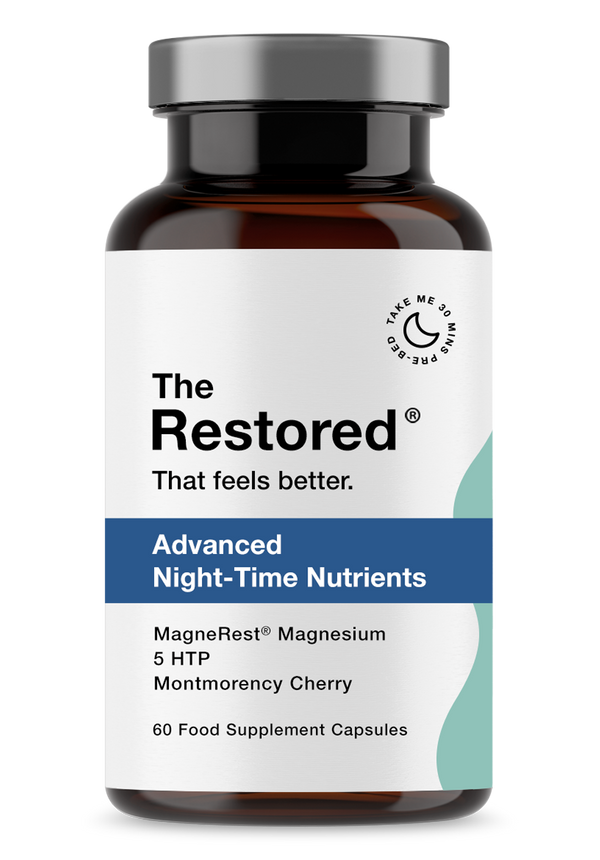5 Best Foods To Eat For Incredible Sleep
Other than trying to relax and turning off your electronic devices, there’s something you can actually do tome help get quality sleep at night. And it’s something you’ve probably been avoiding because you think it’ll make you gain weight.
I know it seems like you’re doomed if you eat right before bed, but you’re really not. Eating quality foods can help you get the rest you need to be your best the following day. And, quality sleep also helps you lose weight.
If you’re having trouble sleeping at night, these are the 5 best foods for sleep; so you can snuggle your pillow and have pleasant dreams.

You're On Your Way To Amazing Sleep With These 5 Foods
Chamomile Tea For Sleep
Chamomile is a small white flower that looks similar to a daisy. Other than warm milk, chamomile tea is probably the most popular drink people have to help them get some peaceful rest.
According to a recent study, chamomile tea can be effective at helping you get to sleep, but it’s best for short-term relief. Taking it on a daily basis can reduce its ability to help you sleep. After 4 weeks, the researchers found that chamomile tea alone worked no better than a placebo.
Chamomile tea also raises your levels of glycine. Glycine helps relax your nerves and your muscles.

Tart Cherry Juice for Better Sleep
The important part is “tart”. The last thing you want to drink when you’re trying to get to sleep is a sugary drink. Tart cherry juice contains melatonin.
Melatonin is a hormone that your pineal gland produces to help you go to sleep. It regulates your circadian rhythm and is ultimately what tells you to go to sleep at night. But it’s incredibly easy for you to tell melatonin that you don’t want to sleep and prevent it from being produced by your body.
If, for instance, you read emails in your bed or you watch TV at night, the blue light emitted from those devices will interfere with your melatonin production. Or, if you go to bed at inconsistent times, you can confuse your pineal gland. So to help your body produce it naturally, go to bed around the same time every night and turn off the lights.

Greek Yogurt to Aid Natural Sleep
Greek yogurt provides L-Tryptophan. L-Tryptophan is a precursor to melatonin. The process looks like this:
L-Tryptophan -> 5-HTP -> Serotonin -> Melatonin
Before it makes melatonin, however, L-Tryptophan is converted to the feel-good hormone, serotonin.
Serotonin helps rid you of your anxiety and elevate your mood so your mind is more at ease. A mind that is at ease is less likely to wander and wonder why so many sheep have decided to hop over the fence tonight.
Supercharge your yogurt with honey and half a banana. Bananas, yogurt, and honey all contain L-Tryptophan. But be sure to go light on the honey. A teaspoon or less is all you need.

Salmon - An Effective Natural Sleep Aid
My personal favourite way to have salmon is with rice and a little bit of soy sauce. It turns out, this is the perfect way to help get some shut eye.
The diagram about Melatonin above is incredibly simple. What I failed to mention earlier is that vitamin B6 helps with the conversion of L-Tryptophan to serotonin and eventually, melatonin. Salmon is a great source of vitamin B6, as are halibut and tuna.
If you mix that with a high glycemic food like rice, you’ll be set. A study published in The American Journal of Clinical Nutrition indicates that high-glycemic meals eaten approximately 4 hours are most effective at getting you to sleep. What food did they find to the best? Jasmine rice.
Eating salmon and rice is not a late-night snack. It could be what you eat for dinner. Then, around 4 hours later, you’d be ready for bed. If 4 hours after dinner isn’t enough time, then spend the few hours relaxing and when your head hits the pillow, you’ll go out like a light.

Whole Grains for Better Sleep
Whole grains like barley and bulgur provide a key nutrient for assisting with sleep – magnesium.
Over 80% of the people in the world are deficient in magnesium. Which is incredibly alarming when you consider magnesium is responsible for over 300 reactions in the body.
Magnesium’s effect on sleep is mostly attributed to its ability to reduce cortisol. Cortisol is the hormone that’s responsible for waking you up in the morning. Cortisol levels begin to spike almost as soon as you open your eyes (or as soon as your clanging, banging, or buzzing alarm clock goes off). Magnesium also helps your muscles relax.
So by relaxing your body and your mind, magnesium helps you get your best sleep.
And when you get your best sleep, you’re ready to attack the day. You’re ready to get to everything you left undone the day before, or just enjoy an entire day of feeling fully rested. There’s nothing quite like a good night of sleep.
 Skip to content
Skip to content




Leave a comment